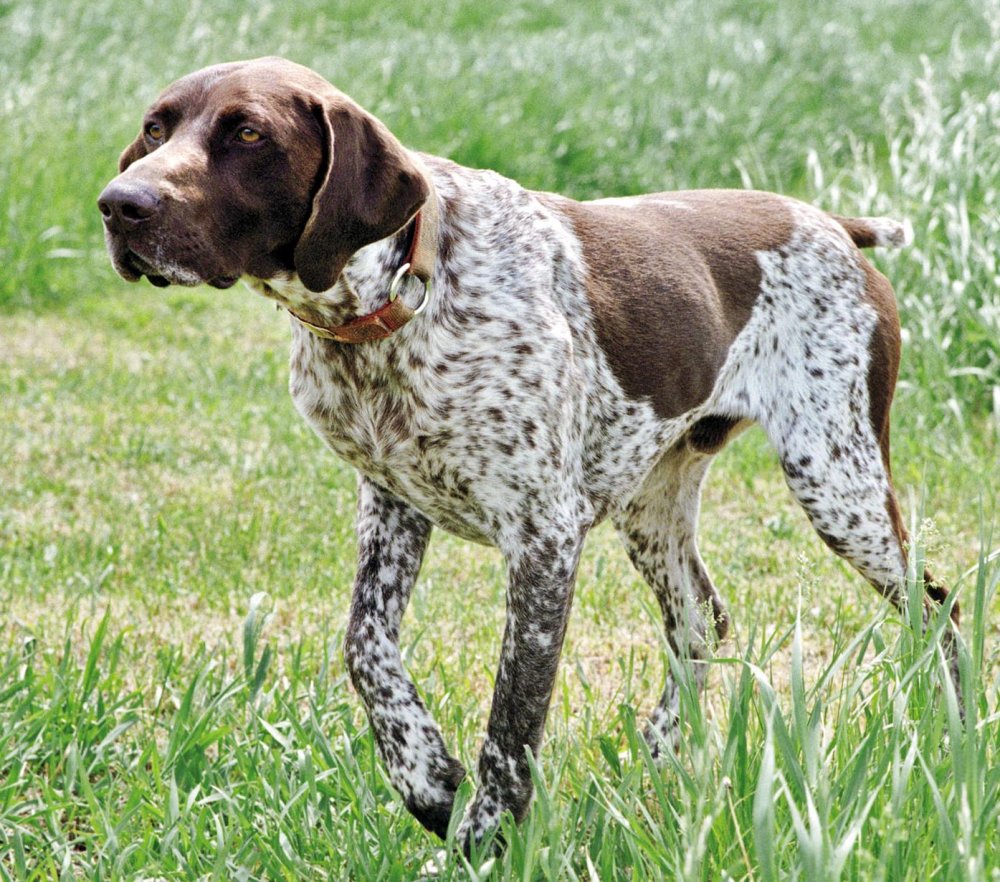- Breed Category: Sporting Group
- Country of Origin: England
- Average Height: Males 63-69 cm, Females 61-66 cm
- Average Weight: Males 25-34 kg, Females 20-29 kg
- Average Life Span: 12-15 years
- Grooming Requirements: Low, occasional brushing
- Exercise Requirements: High, needs daily exercise
- Coat Type: Short and smooth
- Coat Color Variations: Liver, lemon, black, orange
- Shedding Level: Moderate
- Ear Type: Drop ears
- Tail Type: Medium length, tapered
- Temperament: Friendly, energetic, intelligent
- Intelligence Level: High
- Barking Tendency: Low to moderate
- Compatibility with Children: Excellent
- Compatibility with Other Pets: Generally good
- Training Ease: Relatively easy
- Common Health Issues: Hip dysplasia, eye disorders
- Dietary Needs: High-quality, balanced diet
- Energy Level: Very high
- Drooling Tendency: Low
- Sensitivity to Weather: Sensitive to cold
- Overall Maintenance Level: Moderate
- Original Purpose: Hunting and retrieving game
- Year of Recognition by Kennel Clubs: 1876
- Apartment Friendly: Not ideal, needs space
- Best Suited For: Active families, hunters
- Cost of Ownership: Moderate to high
- Unique Traits: Excellent scenting ability
- Popularity Rank: Popular in sporting circles
Did you know that the Pointer dog breed can trace its lineage back over 300 years? This remarkable breed, known for its athleticism and keen hunting instincts, has a rich history that’s as fascinating as its abilities. In this article, we’ll explore the Pointer’s unique characteristics, delve into its storied past, and offer insights into caring for these energetic companions.
The Pointer, often simply called the English Pointer, originated in England in the 17th century. Bred primarily for hunting, these dogs were prized for their ability to locate game birds by pointing with their bodies. Their lineage includes a mix of breeds like the Greyhound, Bloodhound, and Foxhound, which contributed to their speed, scenting ability, and endurance.
The Pointer’s Early Development and Historical Significance
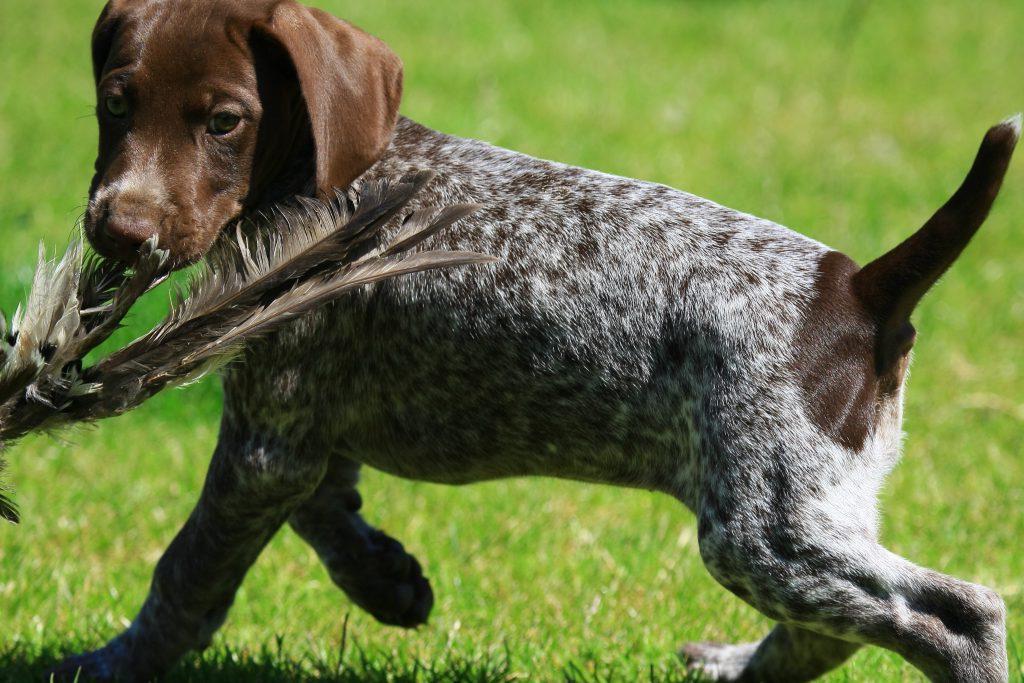
Early Development of the Breed
The Pointer’s journey began in the 17th century, with a focus on creating a dog that excelled in hunting. Breeders combined the best traits of several breeds, including the Greyhound for speed, the Bloodhound for scenting ability, and the Foxhound for endurance. This mix resulted in a dog that was not only fast and agile but also possessed an exceptional sense of smell, making it perfect for locating game birds.
Role in Hunting and Field Work
Pointers were bred to be the ultimate hunting companions. Their primary role was to locate game birds and “point” to them by standing still with their bodies aligned towards the prey. This unique ability allowed hunters to approach and capture the game with ease. Their stamina and keen instincts made them invaluable in the field, and they quickly became a favourite among hunters.
Key Historical Figures
Several key figures played a role in the development of the Pointer. Notably, the Duke of Kingston and Colonel Thornton were instrumental in refining the breed. Their dedication to breeding Pointers with superior hunting abilities helped establish the breed’s reputation and popularity.
Physical Characteristics
Pointers are known for their athletic build, with a sleek, muscular body that exudes power and grace. They have a distinctive head with a long muzzle and expressive eyes. Their coat is short and smooth, often featuring a combination of liver, lemon, black, or orange markings. This breed’s physical attributes are perfectly suited for their role as agile and efficient hunters.
Appearance and Unique Traits
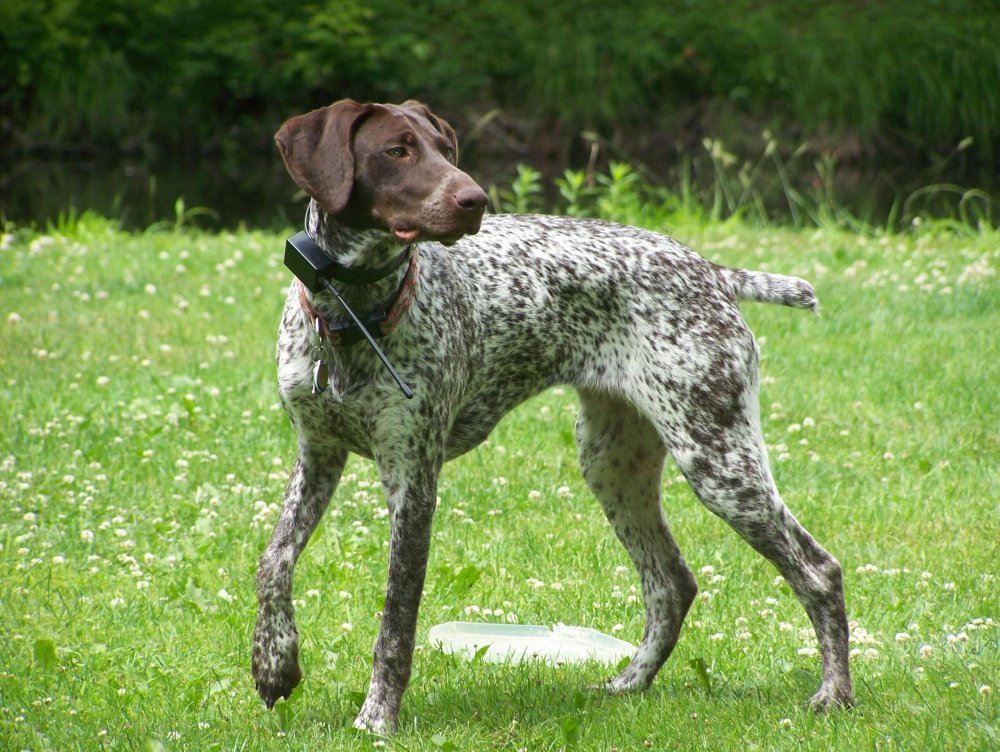
Size and Coat Colour
Pointers are medium to large dogs, typically weighing between 20 to 34 kilograms. Their coat is short and smooth, making them easy to groom. You’ll often see them in a variety of colours, including liver, lemon, black, or orange, often with striking white patches. These colours and patterns give each Pointer a unique look, making them stand out in a crowd.
Distinctive Markings and Physical Traits
One of the most distinctive features of the Pointer is its athletic build. They have a sleek, muscular body that’s built for speed and endurance. Their long, straight tail and strong legs contribute to their graceful stance. The Pointer’s head is well-defined, with a long muzzle and expressive eyes that seem to understand everything you say.
Temperament and Behaviour
Pointers are known for their friendly and energetic nature. They thrive on human interaction and are happiest when they have a job to do. Whether it’s a game of fetch or a long walk, they love being active. Despite their hunting background, they are gentle and affectionate, making them great family pets. Their intelligence and eagerness to please make training a rewarding experience.
Personality and Suitability
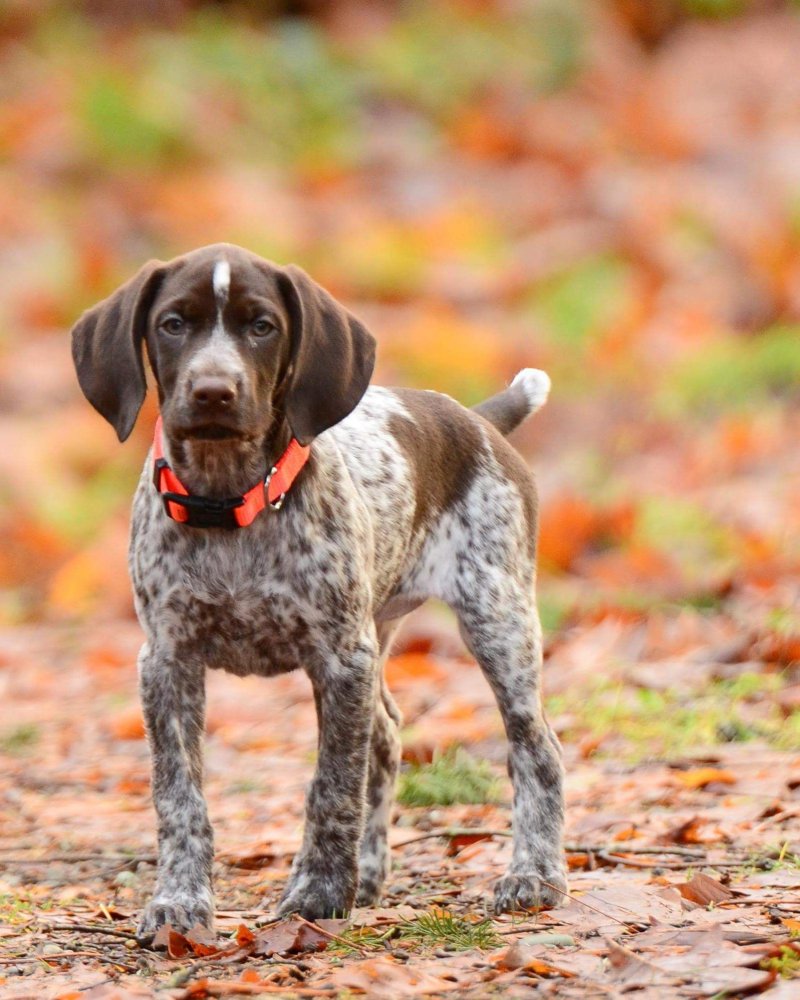
Typical Personality Traits
Pointers are known for their loyalty, intelligence, and high energy levels. These dogs are incredibly devoted to their families and form strong bonds with their owners. Their intelligence makes them quick learners, eager to pick up new commands and tricks. However, their high energy means they need plenty of exercise to keep them happy and healthy.
Suitability as a Family Pet and Working Dog
As family pets, Pointers are a fantastic choice. Their gentle and affectionate nature makes them great companions for both adults and children. They also excel as working dogs, thanks to their hunting background and keen instincts. Whether in the field or at home, Pointers are versatile and adaptable.
Interaction with Children and Other Animals
Pointers generally get along well with children, displaying patience and playfulness. They can also coexist peacefully with other animals, especially if socialised from a young age. Their friendly disposition makes them a welcome addition to any household.
Training and Exercise Needs
Training a Pointer is usually a rewarding experience due to their intelligence and eagerness to please. Consistent, positive reinforcement works best. Exercise is crucial for this breed; they thrive on activities like running, hiking, and playing fetch. Regular exercise helps channel their energy and keeps them content.
Training, Exercise, and Health of the Pointer

Importance of Early Training and Socialisation
Getting a Pointer off to a good start with early training and socialisation is key. These dogs are smart and eager to learn, so introducing them to different environments, people, and other animals early on helps them grow into well-rounded adults. It’s all about building confidence and ensuring they’re comfortable in various situations.
Recommended Training Techniques
When it comes to training, positive reinforcement is the way to go. Pointers respond well to rewards and praise, making them quick learners. Keep sessions short and fun to maintain their interest. Consistency is crucial, so make sure everyone in the household is on the same page with commands and rules.
Daily Exercise Requirements and Activities They Enjoy
Pointers are high-energy dogs that need plenty of exercise to stay happy and healthy. They love activities like running, hiking, and playing fetch. A good mix of physical and mental stimulation is ideal. Aim for at least an hour of exercise each day to keep them content and prevent boredom.
Health and Lifespan
Generally, Pointers are healthy dogs with a lifespan of around 12 to 15 years. Regular vet check-ups, a balanced diet, and plenty of exercise contribute to their well-being. Like any breed, they can be prone to certain health issues, so it’s important to be aware and proactive in their care.
Health and Care for Your Pointer
Common Health Issues
Pointers are generally healthy, but like any breed, they can face certain health issues. Hip dysplasia and elbow dysplasia are common concerns, as are eye conditions like progressive retinal atrophy. Regular vet visits can help catch these early.
Average Lifespan and Health Tips
With proper care, Pointers typically live between 12 to 15 years. Keeping them healthy involves regular exercise, a balanced diet, and mental stimulation. These dogs thrive on activity, so make sure they get plenty of it.
Preventative Care Recommendations
Preventative care is key. Regular vet check-ups, vaccinations, and dental care are essential. Keep an eye on their weight, as obesity can lead to other health issues. Parasite control is also important, so stay on top of flea and tick prevention.
Grooming and Maintenance
Pointers have a short, smooth coat that’s easy to maintain. A weekly brush will keep their coat looking its best and help reduce shedding. Regular nail trims, ear checks, and teeth brushing are also part of their grooming routine.
Coat Care and Grooming for Pointers
Coat Care and Grooming Routines
Pointers have a short, smooth coat that’s pretty low-maintenance. A quick brush once a week is usually enough to keep their coat looking sleek and healthy. This routine helps remove loose hair and dirt, keeping your Pointer comfortable and your home a bit tidier.
Shedding and Seasonal Grooming Tips
While Pointers don’t shed excessively, you’ll notice a bit more hair around the house during seasonal changes. During these times, brushing a couple of times a week can help manage the shedding. It’s also a good idea to check their ears and trim their nails regularly to keep them in top shape.
Diet and Nutrition
A balanced diet is crucial for a Pointer’s health and energy levels. High-quality dog food that meets their nutritional needs is essential. Look for options rich in protein to support their active lifestyle. Always ensure they have access to fresh water, and keep an eye on their weight to prevent obesity.
Nutritional Needs for Optimal Health

Foods to Include and Avoid
For a Pointer, a diet rich in high-quality protein is essential to support their active lifestyle. Look for dog foods that list meat as the first ingredient. Include healthy fats like omega-3 and omega-6 for a shiny coat and joint health. Avoid foods with artificial additives, fillers, and excessive grains, as these can lead to allergies and digestive issues.
Feeding Schedules and Portion Recommendations
Establishing a consistent feeding schedule is important. Adult Pointers typically do well with two meals a day. Puppies may need three to four smaller meals to support their growth. Portion sizes depend on their age, weight, and activity level, so consult your vet for tailored advice. Always ensure fresh water is available.
Fun Facts and Trivia
Did you know Pointers are known for their incredible stamina? They can run for hours without tiring, making them perfect companions for active families. Another fun fact: Pointers have a unique “pointing” stance, which is a natural instinct, not a trained behaviour. This makes them exceptional hunting partners.
Interesting Tidbits and Famous Pointers
Interesting Tidbits about the Breed
Pointers are not just about hunting; they have a few quirks that make them stand out. For instance, their “pointing” stance is a natural behaviour, not something they learn. This instinct is so strong that even young puppies will sometimes freeze and point at objects. Another interesting fact is their incredible stamina. Pointers can run for hours, making them ideal for active families who love outdoor adventures.
Famous Pointers in Media and History
Pointers have made their mark in history and media. One of the most famous Pointers was “Dash,” owned by Queen Victoria. Dash was known for his loyalty and became a beloved member of the royal family. In the world of literature, Pointers have been featured in various hunting stories, showcasing their skills and intelligence. In more recent times, Pointers have appeared in films and TV shows, often portraying the quintessential hunting dog with grace and poise.
Final Thoughts
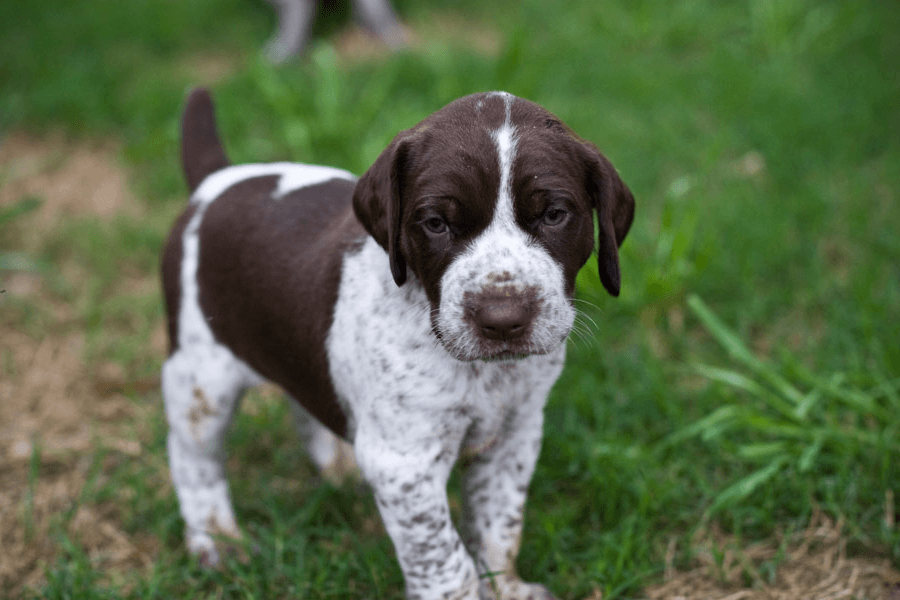
Pointers are the epitome of athleticism and companionship. Their rich history and unique traits make them exceptional hunting partners and beloved family pets. Balancing their high energy with proper training and care ensures a rewarding relationship filled with loyalty and adventure. Embrace the joy and challenges of owning a Pointer, and you’ll find a devoted friend for life. Consider adopting a Pointer if you’re ready for an active, loving companion.
